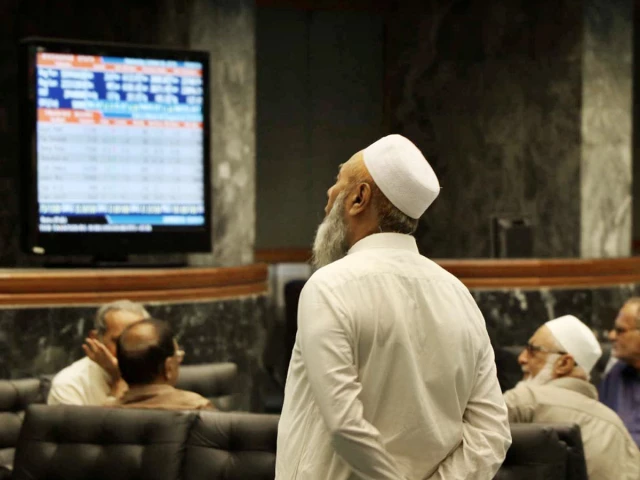Business
Despite floods, sales of cement rise 12.5% | The Express Tribune

LAHORE:
Local cement sales of Pakistan’s industry reached 3.097 million tons in August 2025, higher by 10.33% compared to sales of 2.807 million tons in the corresponding month of last year, according to data released by the All Pakistan Cement Manufacturers Association (APCMA).
Exports rose 22.13% as volumes stood at 749,723 tons in August 2025 against 613,857 tons in August 2024. In terms of growth figures, July was far better as the industry registered an increase of 18.61% year-on-year (YoY) in domestic sales and a jump of 84% in exports. Total cement dispatches during August 2025 were calculated at 3.846 million tons against 3.421 million tons in the same month of last fiscal year, exhibiting an increase of 12.45%.
North-based mills supplied 2.795 million tons, up 8.10% from 2.585 million tons in August last year. Similarly, southern mills sold 1.05 million tons, which was 25.93% higher than dispatches of 0.835 million tons in the previous year. Mills in the northern zones dispatched 2.586 million tons to domestic markets, showing an increase of 8.64% compared to sales of 2.380 million tons last year. South-based mills provided 510,758 tons to local markets, higher by 19.81% over dispatches of 426,289 tons during August 2024.
Exports from the northern mills marginally increased by 1.84% as volumes rose from 204,901 tons in August 2024 to 208,669 tons in August 2025. Exports from the south recorded a healthy growth of 32.30% to 541,054 tons compared to 408,956 tons last year.
During the first two months (July-August) of the current fiscal year, total cement dispatches were 7.847 million tons, which was 20.88% higher than last fiscal year.
A spokesman for the APCMA mentioned that Pakistan was passing through tough times due to excessive rains and floods, which have extensively impacted the citizens. He urged the government to reduce taxes on cement to bring down the cost of rehabilitation in the rain and flood-stricken areas.
Business
Netflix agrees revised all-cash deal for Warner Bros studios

Netflix has significantly increased its all-cash offer to acquire Warner Bros Discovery’s studio and streaming business, intensifying an ongoing takeover battle with rival Paramount Skydance.
The revised bid aims to secure Warner Bros’ extensive film and television library, alongside its premium HBO Max streaming service, in a move that could reshape the entertainment landscape.
In December, Netflix agreed to pay $23.25 in cash, $4.50 (£3.35) worth of Netflix stock per share to buy Warner Bros assets.
The deal valued the business at around $82.7bn (£61.5 bn). However, shares in Netflix have dropped by almost 15 per cent since the deal was first announced.
The US-based streaming giant has said it will now offer $27.75 (£20.64) per share in cash to buy the business, which will include Warner Bros’ extensive library of film and TV rights, as well as its HBO Max streaming service.
Analysts have said the new terms are favourable for investors in Warner Bros Discovery.
Despite the improved financial terms, Warner Bros Discovery continues to back Netflix over a competing bid from Paramount Skydance.
The rival studios and media giant had put forward an offer of $30 per share in cash, but crucially, this was for the entire Warner Bros Discovery company, rather than just its studio and streaming divisions, highlighting a key difference in the acquisition strategies.
David Zaslav, president and chief executive of Warner Bros Discovery, expressed his enthusiasm for the impending merger.
He stated: “Today’s revised merger agreement brings us even closer to combining two of the greatest storytelling companies in the world and with it even more people enjoying the entertainment they love to watch the most. By coming together with Netflix, we will combine the stories Warner Bros has told that have captured the world’s attention for more than a century and ensure audiences continue to enjoy them for generations to come.”

Greg Peters, Netflix’s co-chief executive, underscored the strategic and financial benefits of the amended agreement.
He commented: “By amending our agreement today, we are underscoring what we have believed all along: not only does our transaction provide superior stockholder value, it is also fundamentally pro-consumer, pro-innovation, pro-creator and pro-growth. Our revised all-cash agreement demonstrates our commitment to the transaction with Warner Bros and provides WBD stockholders with an accelerated process and the financial certainty of cash consideration, while maintaining our commitment to a healthy balance sheet and our solid investment grade ratings.”
The agreed deal is contingent on Warner Bros Discovery completing a proposed spin-off of its cable channels, which include CNN, TBS, and TNT Sports in the UK.
Business
India’s Core Industries Grow 3.7% In December 2025, Cement Tops List

Last Updated:
India’s Index of Eight Core Industries rose 3.7 percent in December 2025, led by cement and steel growth, while oil and gas output declined.

Infrastructure-Linked Sectors Push Core Index Higher in December
India’s core industrial sectors showed stronger momentum in December 2025, with the Index of Eight Core Industries (ICI) rising 3.7 per cent year-on-year, according to provisional government data. This marks an improvement from November’s final growth rate of 2.1 per cent, signalling a mild recovery in key production segments.
The eight core industries together account for 40.27 per cent of the weight of the Index of Industrial Production (IIP), making them a crucial indicator of overall industrial health.
Cement, Steel Lead the Growth
Cement and steel emerged as the strongest performers in December. Cement production jumped 13.5 per cent, reflecting steady demand from infrastructure and construction activity. Steel output also remained robust, rising 6.9 per cent during the month.
Electricity generation increased by 5.3 per cent, pointing to sustained power demand from industry and households. Fertilizer production grew 4.1 per cent, offering support to the agricultural sector, while coal output rose 3.6 per cent, helping ease supply pressures.
Oil and Gas Remain a Weak Spot
In contrast, the oil and gas segments continued to struggle. Crude oil production declined by 5.6 per cent, while natural gas output fell 4.4 per cent in December compared to the same month last year. Petroleum refinery production also slipped 1.0 per cent, highlighting ongoing operational and supply-side challenges in the energy sector.
Cumulative Growth Still Modest
For the April–December 2025-26 period, the cumulative growth of the core industries stood at 2.6 per cent, slightly muted despite strong gains in cement and steel. Steel recorded a sharp 9.5 per cent cumulative growth, while cement rose 8.8 per cent.
However, coal, crude oil, and natural gas saw cumulative declines, which weighed on the overall index.
January 20, 2026, 18:31 IST
Read More
Business
Toy sellers’ keep close watch on under 16s social media ban

Kevin PeacheyCost of living correspondent
 Getty Images
Getty ImagesUK toy sales have risen for the first time in five years, but sellers are braced for the potential impact of any social media ban for under-16s.
The value of toy sales rose by 6% last year, compared with the previous year, according to research company Circana, bringing some much-needed cheer for a sector that has struggled since the pandemic.
The rebound has been driven by the so-called kidult market – which relates to players over the age of 12, some of whom are influenced by trends on social media.
But experts gathered at the annual Toy Fair in London on Tuesday said that films, video games and playground chat could still help push further growth in 2026.
Cost of living pressures have loomed over families in recent years, although spending on children – particularly at Christmas – has remained a priority for many.
Covid lockdowns brought a boost to the sector when toys and games became central to keeping children and adults entertained at home.
Sales dipped since then, until last year when the number of toys sold rose by 1% compared with 2024, according to Circana.
With kidults spending more, the value of sales rose by 6% – the first increase since 2020, according to Circana. It valued the UK market at £3.9bn last year.
Melissa Symonds, executive director of UK toys at Circana, described last year as a “clear turning point” for the sector.
Cinema, streaming, video game and sport tie-ins – such as Minecraft and Formula 1 – all proved successful.
Symonds said that excluding the unusual circumstances of the pandemic, last year recorded the first organic growth since 2016.
Social media trends
Kidults accounted for 17% of the toy market in 2016, but this had risen to 30% by last year.
Building sets, predominantly Lego, has appealed to adults, but trends amplified on social media have also led to a 12% growth in collectibles across generations. Pokémon, K-Pop Demon Hunters, and Hello Kitty have all proved to be “market-moving trends”, according to Circana.
Symonds said the industry would be considering the impact of the social media ban for under-16s in Australia, and the potential for a similar ban in the UK.
She said manufacturers and retailers may need to reconsider how some of these toys were marketed if bans were brought in more widely.
Kerri Atherton, from the British Toy and Hobby Association – which is hosting its annual trade fair at London’s Olympia, said it was still too early to know what the fallout would be.
She described 2025 as a pivotal moment for the UK toy sector, but said businesses and consumers still faced financial challenges going into 2026.
-

 Tech1 week ago
Tech1 week agoNew Proposed Legislation Would Let Self-Driving Cars Operate in New York State
-

 Entertainment1 week ago
Entertainment1 week agoX (formerly Twitter) recovers after brief global outage affects thousands
-

 Sports5 days ago
Sports5 days agoPak-Australia T20 series tickets sale to begin tomorrow – SUCH TV
-

 Fashion3 days ago
Fashion3 days agoBangladesh, Nepal agree to fast-track proposed PTA
-

 Politics3 days ago
Politics3 days agoSaudi King Salman leaves hospital after medical tests
-

 Business4 days ago
Business4 days agoTrump’s proposed ban on buying single-family homes introduces uncertainty for family offices
-

 Tech5 days ago
Tech5 days agoMeta’s Layoffs Leave Supernatural Fitness Users in Mourning
-

 Tech6 days ago
Tech6 days agoTwo Thinking Machines Lab Cofounders Are Leaving to Rejoin OpenAI












